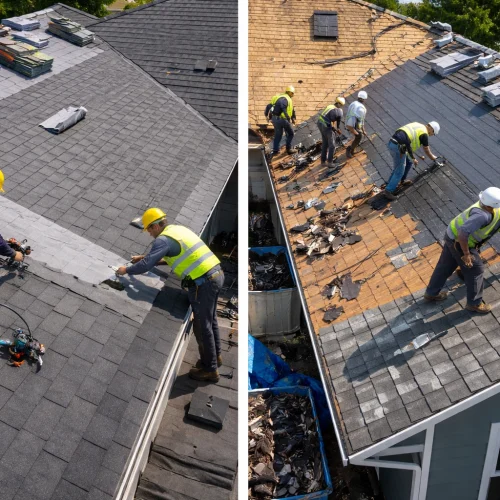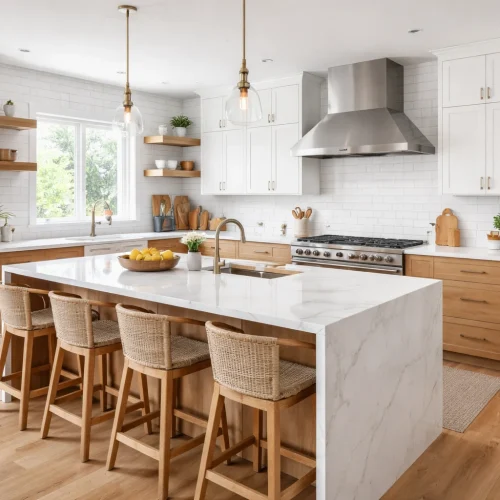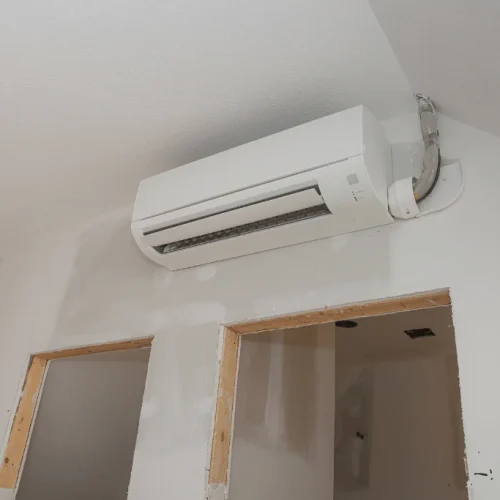
Finding a great deal on a home means more than getting a low price. You need to find a place that brings good value over time and can rise in worth. It should also fit your money situation and what you want in life. A good deal brings several things together. This can be the state of the home, why the seller wants to move, and what is going on in the market now. You have to look closely, do your homework, and not judge by just what you can see at first.
The current real estate market in homes for sale Horry County SC shows why it is important to have a plan. Right now, the market is balanced. Most homes are selling for a bit less than what people ask for, and the time it takes to sell is getting longer. This means buyers have more power now. There are more chances for people to get good deals than when sellers have all the control. Knowing what is happening in the local market is the best way to spot where you can do well and find what works for you.
Research the Market and Understand the “Comps”
The base of any good real estate deal starts with a strong understanding of the local market. You need to know what other homes like it in the area sell for, or you won’t know if the price is right. This is where a CMA, or comparative market analysis, helps.
- Look at recently sold homes: Check homes that sold in the past 3 to 6 months. Try to find ones that have the same size, age, and features as the one you are looking at. This can give you a good idea of what a home is worth right now.
- Check the days on market: A home that has been listed for a long time could have a price that is too high. Or, it could give you a chance to talk down the price and get a better deal.
- Watch local trends: Look at the number when it comes to the sale price compared to the list price for homes in the area. If homes keep selling for less than the asking price, you have more space to make a lower offer.
Look for Motivated Sellers
A seller’s reason for selling can be very important for a buyer. A seller who has to move soon because of a new job, a divorce, or money trouble may be ready to take a lower offer. You can see when a seller really wants to get rid of their place if you watch for some clear signs.
- Price reductions: A house that has had its price lowered more than once shows the seller wants to sell it quickly and get the deal done.
- Extended time on the market: When a home has been listed for a long time, it shows that the seller is tired of waiting and will likely be open to talk about an offer now.
- Vacant properties: If a home is empty, it is costing the owner money. So, they often want to sell and will be open to hearing any offers.
Don’t Be Afraid to Negotiate
Once you have found a property that meets what you are looking for, the next step is to try and get the best deal. You need to know the market well and understand why the seller wants to sell, as this will help you feel sure about your offer. For example, in the homes for sale Horry County SC market right now, many homes are selling for less than the first asking price. This means buyers are in a good spot. A good offer uses details like other sales in the area and any problems found during a home check. This can help bring the price down. Your main goal is to make a solid offer based on what the home is really worth and not just go with the price the seller asks for at first.
Factor in Home Inspections and Repairs
A great deal isn’t just about the purchase price—it’s also about understanding future repair costs.
Key points to consider:
- Schedule a professional home inspection before committing.
- Use inspection findings as negotiation leverage for price reductions or repair credits.
- Watch for high-cost repairs like:
- Roofing replacements
- HVAC system upgrades
- Structural foundation fixes
- Electrical rewiring
| Common Issue Found | Estimated Cost Range | Negotiation Potential |
|---|---|---|
| Roof replacement | $5,000 – $15,000 | High – seller may lower price or repair |
| HVAC replacement | $4,000 – $12,000 | High – often used for credits |
| Foundation repair | $3,500 – $10,000+ | Medium to high |
| Electrical updates | $2,000 – $8,000 | Medium |
Consider the Cost of Ownership
Even a low purchase price can turn costly if recurring expenses are high.
Factors to evaluate:
- Property taxes (check local rates and trends)
- Homeowners Association (HOA) fees
- Insurance premiums
- Utility costs (request 12 months of utility bills from seller)
| Expense Type | How to Check | Red Flags |
|---|---|---|
| Property Taxes | County assessor’s office | Rapid yearly increases |
| HOA Fees | HOA disclosure documents | High special assessments |
| Insurance | Insurance quote before offer | Above-average premiums |
| Utilities | Seller’s recent bills | Significant seasonal spikes |
Explore Off-Market Opportunities
Some of the best deals never make it to public listings.
Ways to find hidden opportunities:
- Network with local real estate agents for pocket listings.
- Join neighborhood Facebook groups or community forums.
- Monitor local classifieds and “For Sale by Owner” sites.
- Attend real estate investor meetups.
Secure Financing Before You Shop
Being financially prepared gives you an edge.
Benefits of pre-approval:
- Shows sellers you’re a serious buyer.
- Speeds up the offer and closing process.
- Helps you stay within budget.
| Financing Step | Benefit |
|---|---|
| Get pre-approved | Strengthens offer |
| Compare mortgage rates | Saves thousands over loan term |
| Review credit score | Improves loan terms |
| Prepare down payment | Reduces monthly mortgage |
Watch for Seasonal Buying Opportunities
Timing can save you thousands.
Best times to buy in many markets:
- Late fall (Oct–Dec) – Sellers motivated before year-end.
- Winter (Jan–Feb) – Less competition from buyers.
| Season | Market Condition | Buyer Advantage |
|---|---|---|
| Spring | High activity, high prices | Low |
| Summer | Competitive, peak listings | Medium |
| Fall | Slight slowdown | High |
| Winter | Minimal competition | Very High |
Common Questions
Compare it with recent sales of similar homes in the area using a Comparative Market Analysis (CMA).
A motivated seller is someone eager to sell quickly, often due to relocation, financial issues, or personal circumstances.
Yes, a professional inspection helps uncover hidden problems that can affect the home’s value and your safety.
Use market data, inspection findings, and seller motivation to make a strong, fair offer.
Late fall and winter often have fewer buyers, which can give you more negotiating power.
Comps are comparable homes recently sold in the same area that help determine a property’s market value.
Yes, they often have less competition and more room for negotiation than publicly listed homes













